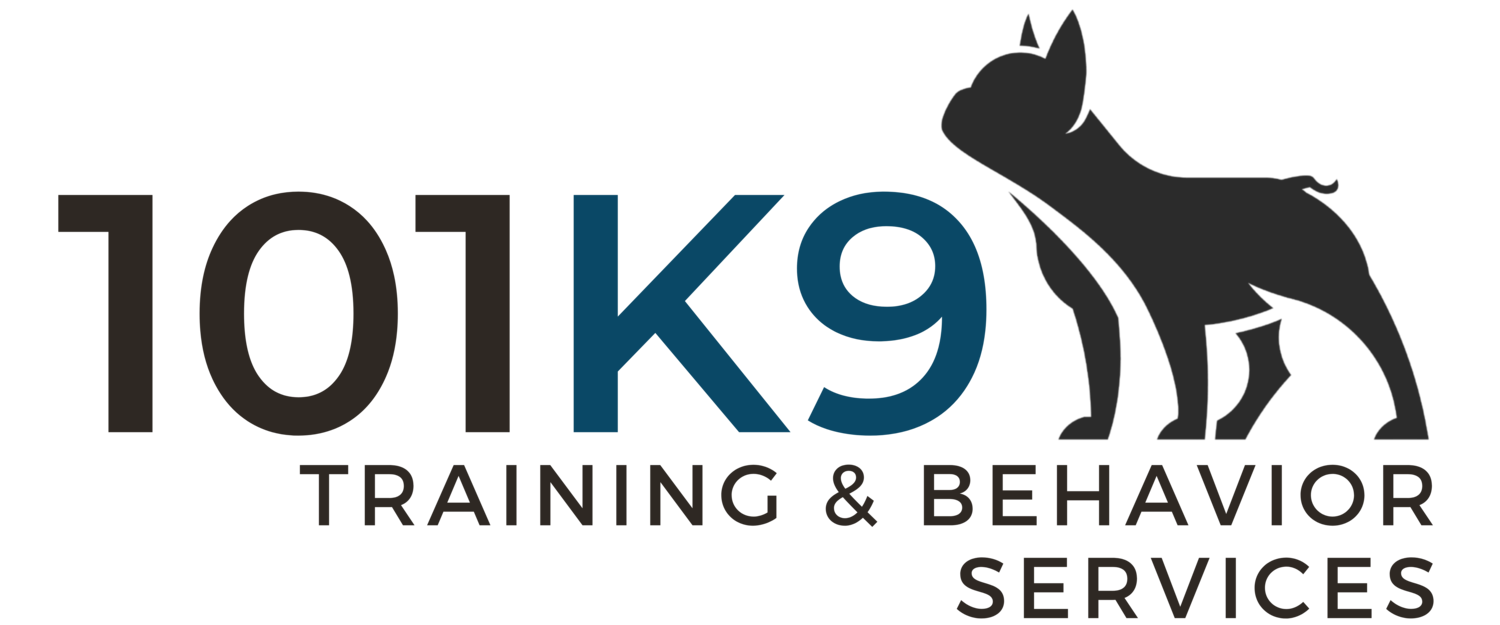Expectations, Reinforcing Behaviors, and Self-Rewarding Behaviors
Kongs can be frozen with wet kibble (and fed frozen for duration) or refrigerated.
I recommend having multiple refrigerated or frozen at a time. You can also look up Kong filling recipes to switch it up!
Have reasonable expectations for your dog.
Dogs vary in intellect, reactivity, endurance, sensitivity, strength, focus, and memory skills. Some tricks and commands are easy for one dog to master while harder for others (e.g. “leave it” is harder for prey-driven or reactive dogs, “down” is harder for long-bodied and short-legged dogs). Behavioral problems are much harder to manage, lessen, or eliminate then learning new commands. The longer a behavioral issue is left without management the longer it will take to remedy. It is also possible that a certain behavior will never be eliminated but can be lessened or managed (e.g. major dog aggression, prey drive, mounting). In addition, there may be psychological issues or syndromes that could be at play which would require advanced non-trainable protocols.
Practice.
Provide your dog with at least TWO of 5 to 15 minute training sessions a day practicing the commands learned. I recommend continuing teaching your dog other commands and tricks in addition to what they know to further their development, enrichment, and confidence.
Stop training while you are ahead.
Do not push your dog over their limit. We as humans like to see how far we can get – but to keep training positive and effective I strongly suggest ending each session on a high note and not when the responses from your dog start slipping. This will prevent you from getting frustrated and the dog from feeling stressed or overworked.
Make sure your dog has something to do.
Invest into multiple properly sized Kongs and other enrichment toys. You can feed your dog’s entire meals from a Kong to help them with their down-time and to stay busy. Most dogs do not like to be bored and will find other, possibly destructive, ways to entertain themselves. They can also develop behavioral issues when they are able to keep on rehearsing these negative behaviors. Put these away when not in use.
Kongs can be frozen with wet kibble (and fed frozen for duration) or refrigerated. I recommend having multiple refrigerated or frozen at a time. You can also look up Kong filling recipes to switch it up!
Keep in mind the difference between a walk and exercise or play.
A walk for most dogs is not exercise. It is enrichment to see, and smell, and touch things all around. Your dog must be getting enough exercise based on their energy levels, breed, and outdoor temperature as well as mental stimulation (e.g. training sessions, enrichment toys).
Avoid reinforcing bad behaviors.
If you talk to your dog, pet your dog, give your dog food, let them out the door, leash them, or otherwise interact with them while they are in an excitable state, guess what…you just paid them for being overstimulated and they are now much more likely to repeat that behavior and even intensify it as time goes on. Have your dog earn life-rewards through calmness as well. This focuses on what a dog’s brain is doing instead of just what their body is doing. Dogs stop repeating behaviors that are not successful or rewarding for them, so if you want to start promoting calmness, stop rewarding excitability. Yes it’s cute, yes it makes you feel special that your dog is so excited to see you or interact with you but if it’s causing a behavior problem, taking steps to address is now will ultimately help you and your dog live better together. Try to use every single moment as a training opportunity for your dog not to reinforce bad behavior.
Avoid self-rewarding behaviors.
Avoid your dog from self-rewarding when doing something disobedient (e.g. grabbing things off the counter/garbage, playing tug with the leash, jumping on people). When your dog learns that they can self-reward while doing something undesirable it is much harder to bring back value to listening to you or not doing a certain behavior.

